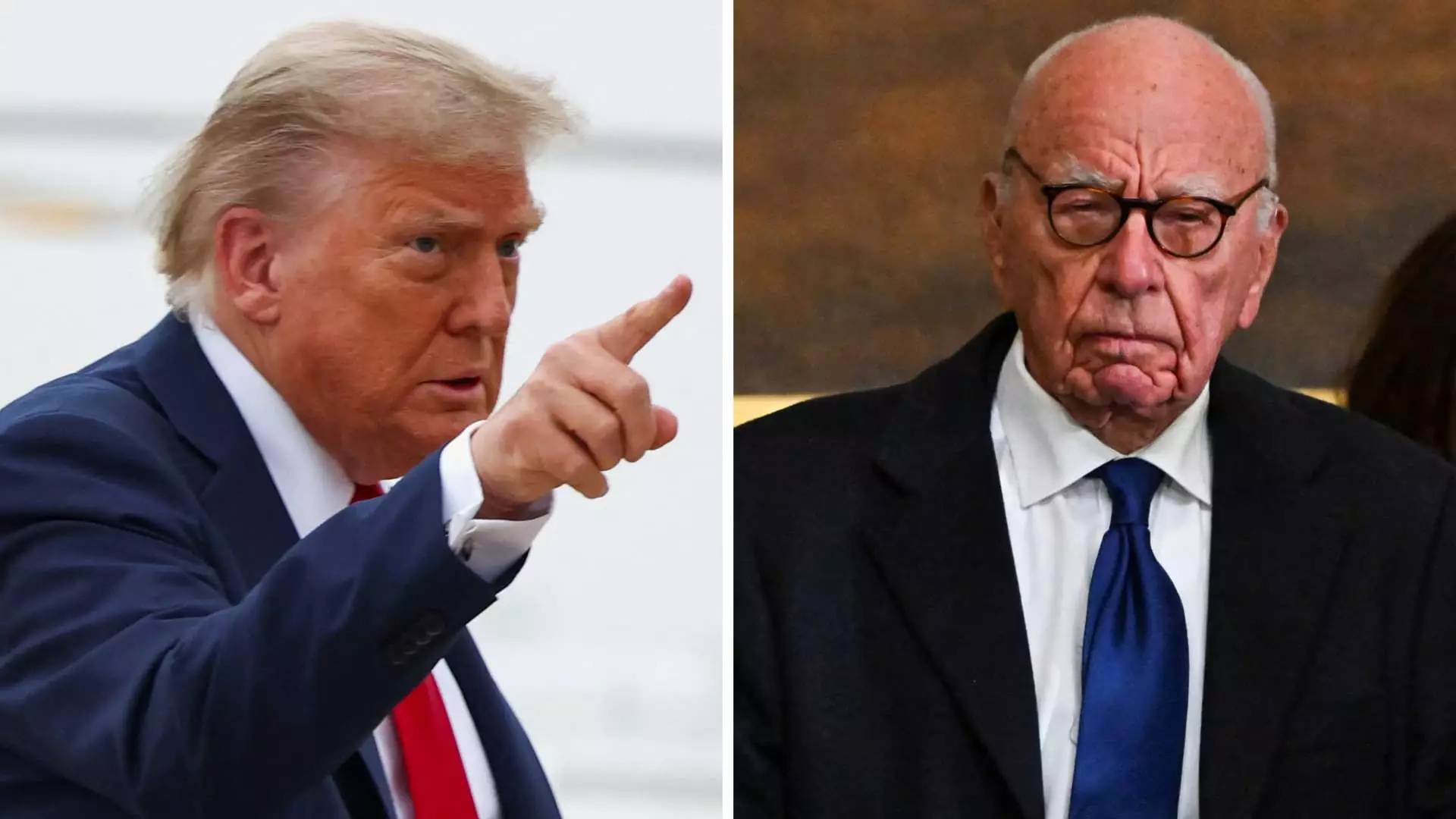In a disturbingly revealing move, Murdoch’s decision to provide President Trump with regular health updates as part of a legal game highlights the fragility of transparency in power circles. This clandestine arrangement, delicately tucked into a court filing, is more than just a procedural wrinkle; it’s a clear demonstration of how the elite manipulate judicial processes to serve their interests. While the media and the public might see this as a technicality, the underlying message is alarming: influence extends beyond votes and policy, penetrating the very foundations of justice and accountability.
Murdoch’s willingness to disclose personal health information—yet simultaneously control the timing and nature of his testimony—further underscores the imbalanced power dynamics at play. An aging media titan, besieged by health issues, is leveraging his stature and connections to shape legal outcomes. This isn’t merely about one man’s health; it’s about an entire system where media magnates dictate terms that favor their political allies, blurring the lines between legitimate legal procedures and orchestrated power plays.
The Symbiotic Relationship Between Media and Politics
The longstanding alliance between Fox News and Donald Trump is more than just ideological solidarity—it is a calculated partnership that influences the political landscape at every turn. For over a decade, Fox has served as Trump’s unofficial cheerleader, shaping public discourse and lending legitimacy to policies often grounded more in ideology than facts. This cozy relationship allows powerful figures like Murdoch to extend their influence far beyond journalism, infiltrating the corridors of power and courtroom battles with ease.
The current legal maneuvering exemplifies how media influence can be weaponized to protect political interests. Murdoch’s agreement to give health updates, supposedly a required legal transparency, is in reality a shield—allowing him to maintain dominance over the narrative while dodging the potentially damaging scrutiny of sworn deposition. It exposes how the veneer of legality can mask underlying negotiations that ensure the maintenance of influence over influential figures and institutions.
Media Ownership and Democracy: A Threat or a Necessary Power?
The close ties between powerful media owners like Murdoch and political figures like Trump threaten the very fabric of democratic accountability. When media giants leverage their influence to sway legal battles, political outcomes, or policy directions, the public’s ability to receive unbiased information is compromised. This isn’t about partisan bias alone; it’s about the erosion of checks and balances that keep democracy vibrant.
Yet, from a center-wing liberal perspective, it is crucial to recognize that this isn’t simply about attacking corporations or individual figures. It’s about asserting the importance of transparency, oversight, and diversity in media ownership, to counterbalance the outsized influence wielded by a small elite. Media conglomerates, with their intertwined political connections, often prioritize their own interests over the public good, leading to a distorted political landscape where truth is often the first casualty.
Reimagining Justice in an Era of Media Monopolies
Legal processes should be immune to the influence of media moguls, yet current practices suggest otherwise. Murdoch’s conditional health disclosures exemplify how legal proceedings can be engineered to favor powerful interests rather than serve justice. The shift from a straightforward deposition to a delayed, controlled process indicates a disturbing trend where legal procedures are manipulated to accommodate influence rather than integrity.
This should serve as a wake-up call: that accountability in legal and political realms cannot be taken for granted when media giants hold sway. To safeguard democracy, reforms are necessary—ones that limit undue influence, promote genuine transparency, and elevate diverse voices outside the corridors of corporate and political entanglements.
In essence, this case isn’t just about one lawsuit or an individual’s health; it’s a mirror reflecting a broader crisis. It demands a critical stance, recognizing that the intersection of media power and political loyalty poses an ongoing threat to democratic principles. Without intentional resistance and structural reforms, the shadow of monopolistic influence will continue to distort the public’s access to truth and fairness.

